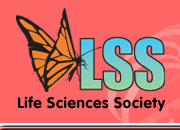Matthew Scott
Biography
Professional
1993 - Present
HHMI Investigator
Professor, Departments of Developmental Biology, Genetics, Bioengineering
Stanford University Medical School
1989 - 1990
University of Colorado, Boulder
Member:
American Academy of Arts and Sciences
National Academy of Sciences
Institute of Medicine
Awards:
Young Scientist Award, Passano Foundation
Edwin Grant Conklin Medal, Society for Developmental Biology
Education
BS Biology - MIT
PhD Biology - MIT
Research Interests
Early embryonic development is governed by an exquisite interplay of genes that organizes cells as they proliferate. Signals flow
between cells to control their fates; information inherited by the cells influences their responses to the signals. Transcription
factors necessary for forming particular parts of the body—such as head-to-tail differences, heart, eyes, or nervous system—have
remained dedicated to those tasks through evolution. Similarly, the genes and proteins that code for signals, signal receptors,
and information transfer within the cell have been preserved. We study evolutionarily conserved regulators in flies and in mice to
learn how the embryo is constructed and how pattern-organizing genetic programs arose, function, and change. Genetic damage to
developmental regulators can lead to cancer, birth defects, and neurodegeneration; we study all of these processes in the
mammalian cerebellum.
• The Hedgehog Signaling System in Development and Cancer
• Molecular of the Niemann-Pick type C syndrome, a neurodegenerative disorder
• Rab proteins in development and cell biology
• Chromatin factors in embryonic stem cells
• Vertebrate functions of Planar Cell Polarity (PCP) genes
Go to Scott's profile at
http://med.stanford.edu/profiles/Matthew_Scott/
for more details and list of publications.


